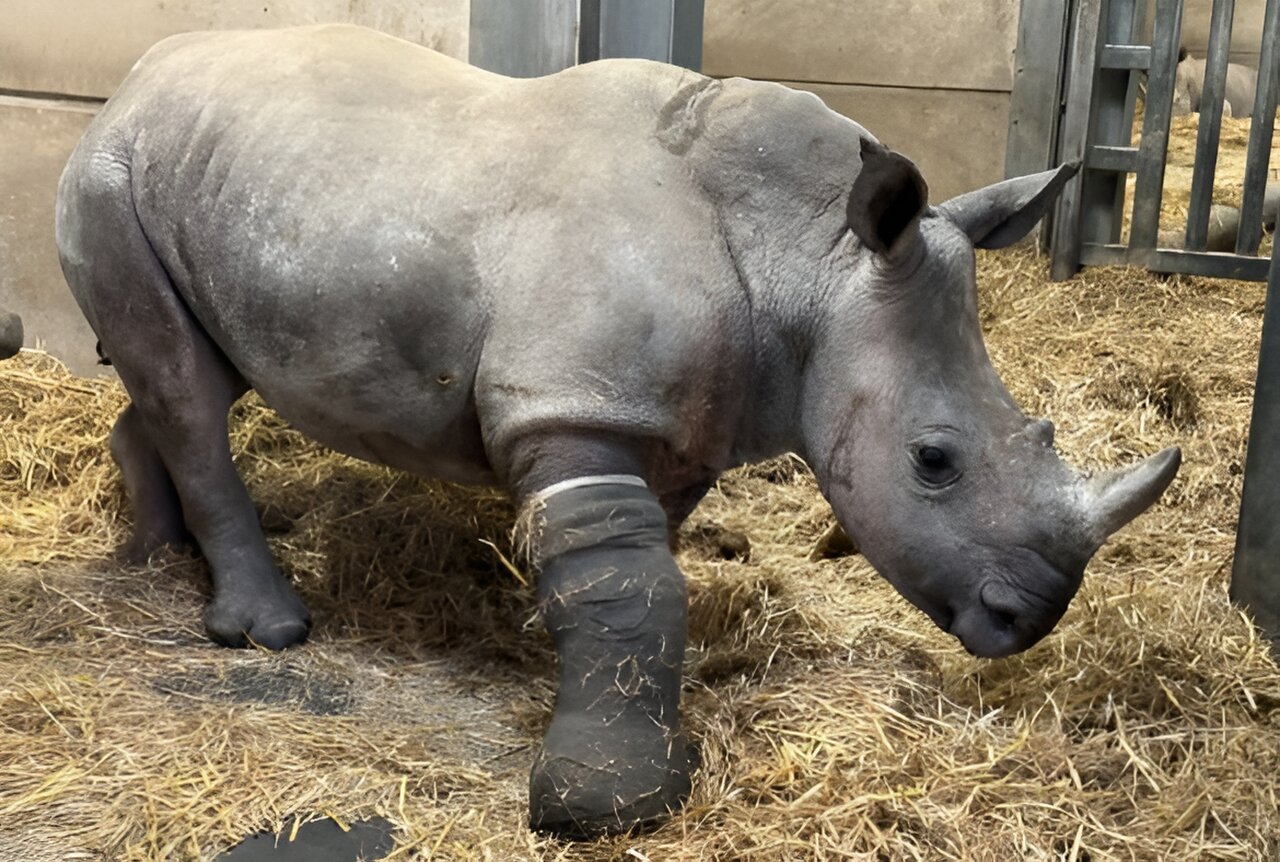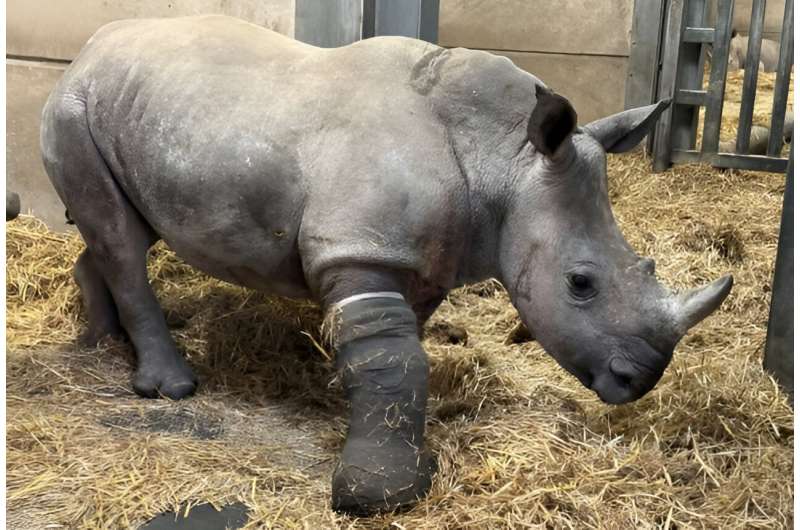

The University of Liverpool’s Leahurst Equine Hospital and Knowsley Safari worked together to conduct an ultra rare veterinary procedure.
A team of more than 10 vets, including specialist surgeons and anesthetists, nurses and animal keepers, plus support staff, have carried out ground-breaking veterinary treatment to help heal a southern white rhinoceros’ broken leg, at Knowsley Safari in Merseyside.
Amara is known to the Safari’s animal keepers for her boisterous play, and typical of her species, she enjoys a good sparring session with other rhino.
Earlier this year, Amara began limping on her right front leg and following rest and pain relief, as well as an assessment, the Knowsley Safari team brought in the University’s specialist equine surgeons to help with the diagnosis, where radiographs confirmed a fractured ulna.
With no records or documentation existing worldwide for a rhino with this type of leg injury, the team used their expertise in treating horses and applied it to Amara.
Under anesthesia in Amara’s enclosure, the large team performed a lengthy operation, including key-hole surgery of Amara’s wrist, in a procedure lasting five hours.
Dr. David Stack, senior lecturer in equine surgery at the University of Liverpool, explains, “Amara’s operation is unlike anything we’ve experienced previously. We knew we could position the camera inside her joint, but due to the unprecedented nature of the procedure, we didn’t know how much room we would have to operate, or how much of the affected area we would be able to see.”
Post-operatively Amara wore a full limb cast to support her leg and stayed in her enclosure to minimize movement. Knowsley Safari’s animal keepers provided a comfortable space, by keeping her with mum, Meru and covering the floor of her stall in rubber mats and straw.
The team also provided plenty of mud to keep both mum and daughter’s skin in good condition and plenty of belly rubs and scratches of course, which both rhinos love. But despite the animal team going above and beyond to support Amara, there was some uncertainty about her recovery.
Dr. Stack continues, “We were unsure if the cast would be strong enough and how Amara would cope with such a restriction on her limb. We hoped that she would accept it and that she would be able to move around, get down and, importantly, back up again but this was unchartered water.”
Eventually Amara was on her feet again and able to enjoy life outdoors once more, graduating from a small paddock and eventually to the wide-open space of the Safari Drive with the rest of her crash.
Lindsay Banks, Ungulates Team Manager at Knowsley Safari, comments, “Amara dealt so well with her treatment and wearing the cast, with it finally being removed in May. It was 27 weeks from Amara fracturing her leg, to being let back out into the paddock to join the rest of the crash and as her recovery continues, we’re continuing to monitor her closely.”
To help with Amara’s ongoing healing, the surgical team injected Amara’s affected joint with platelet rich plasma (PRP), a solution derived from Amara’s own blood, containing platelets, growth factors helping to support the repair process—Amara’s own healing potential is being used to promote the best possible recovery.
Dr. Stack concludes, “Treating Amara has been a truly ground-breaking veterinary journey incorporating many firsts which we will now document should another animal team encounter similar scenarios in the future, though we very much hope the notes are never needed.”
Provided by
University of Liverpool
Citation:
World first medical procedure to heal 800 kg rhino’s broken leg (2024, September 19)
retrieved 19 September 2024
from https://phys.org/news/2024-09-world-medical-procedure-kg-rhino.html
This document is subject to copyright. Apart from any fair dealing for the purpose of private study or research, no
part may be reproduced without the written permission. The content is provided for information purposes only.